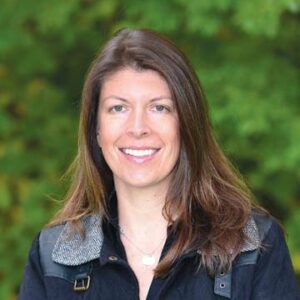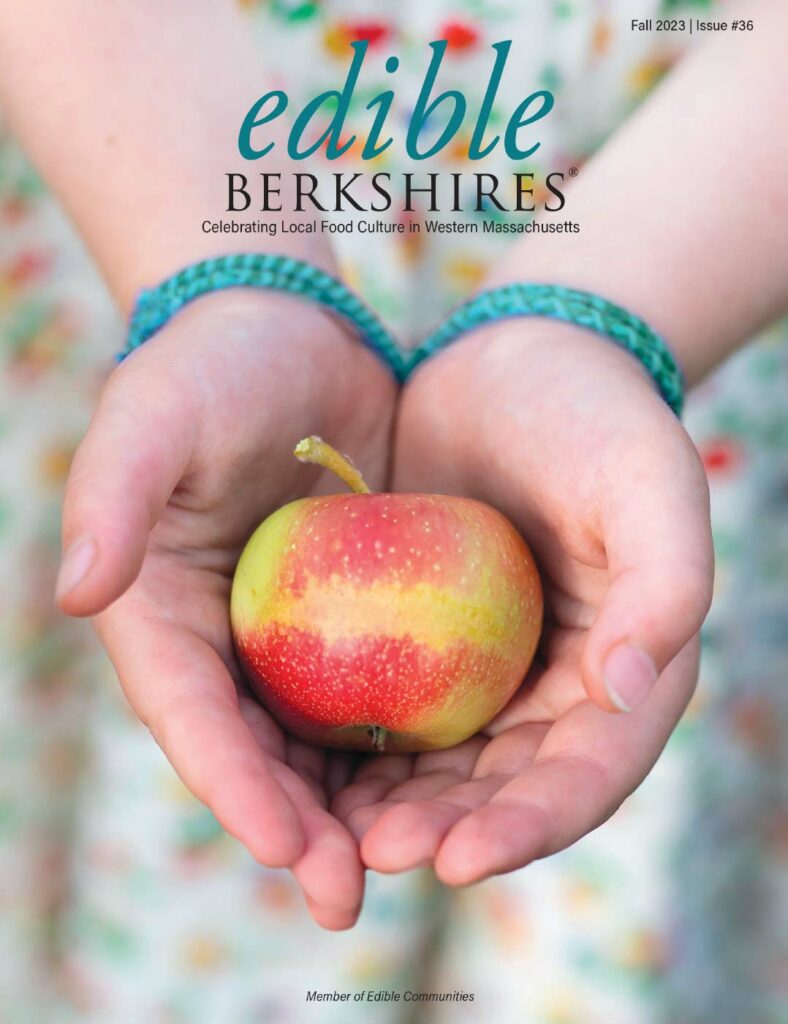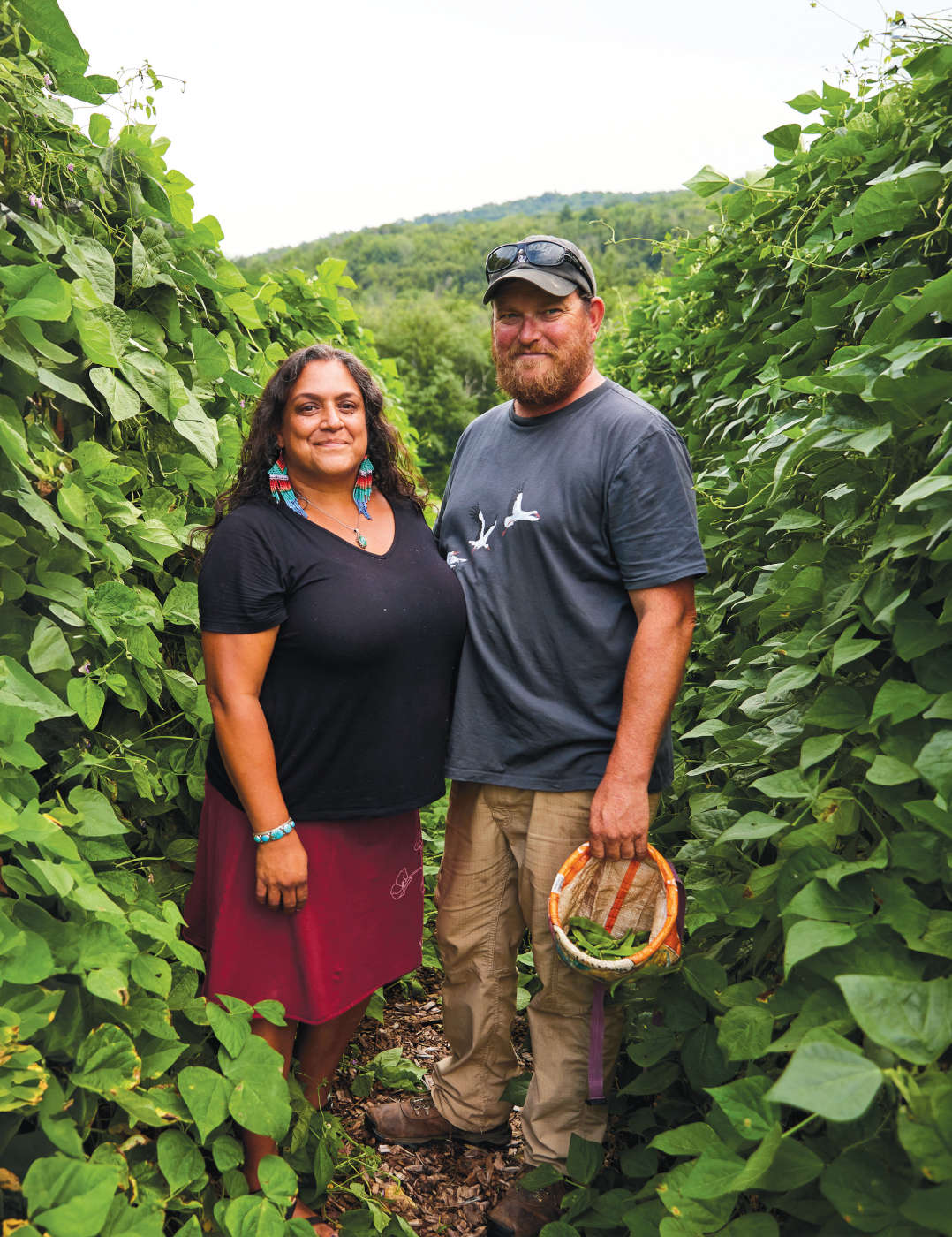
PHOTOGRAPHS BY LINDA CAMPOS
Long before a thriving CSA membership emerged and the towering community barn on the edge of McCarty Road took shape, Pete and Jen Salinetti began sowing seeds of intention deep in the heart of Tyringham’s fertile valley. When the cofounders of Woven Roots Farm pulled their first harvest from the ground more than two decades ago, they were farming in Lee and sharing their bounty with neighbors via an honor-box farm stand. Three years later, the Salinettis transitioned to farming full-time, implementing production methods that honor ancestral practices of tending the land. This fall, as they prepare to officially open the doors of their multipurpose barn at Woven Roots Farm & Community Center, the pair and their team remain deeply rooted in the work of dissolving barriers, cultivating food sovereignty, and stewarding the land in ways that are mutually beneficial.
“When we were first greeted by this land, it was very clear that [it] was meant to be shared,” says Jen, who earned a BS in Sustainable Agriculture and Herbal Studies from University of Massachusetts Amherst. It’s where she met Pete, who was raised in neighboring Lee by parents who tended an extensive vegetable garden that, according to Pete, yielded “tons of fresh veggies throughout the summer with plenty to share and put away for the winter months.”
After 11 years in their original location, Jen and Pete invested more than three years building a relationship with owners of land in nearby Tyringham, ultimately purchasing a five-acre parcel at the edge of the forest and leasing another five there. “[Arriving to this land] was like a return to parts of myself that I have been yearning for,” says Jen, a transracial adoptee who was born in the highlands of Colombia and raised in New Jersey. Jen’s true passion for the land has taken shape in the Berkshires, where she first started to feel a sense of home—something she had not experienced as a young person.
Together, Jen and Pete built a home, had two children, and moved their young family to the site of Woven Roots Farm in 2014. Among the first seeds they planted: pole beans that were brought to this country by Pete’s great-grandfather, an Italian marble-cutter from the small village of Sondrio in the Italian Alps. He is the fourth generation in his family to grow the beans, which he has named Sondrio Select. “We now graciously share them with any community member interested in growing out these gems,” says Pete.
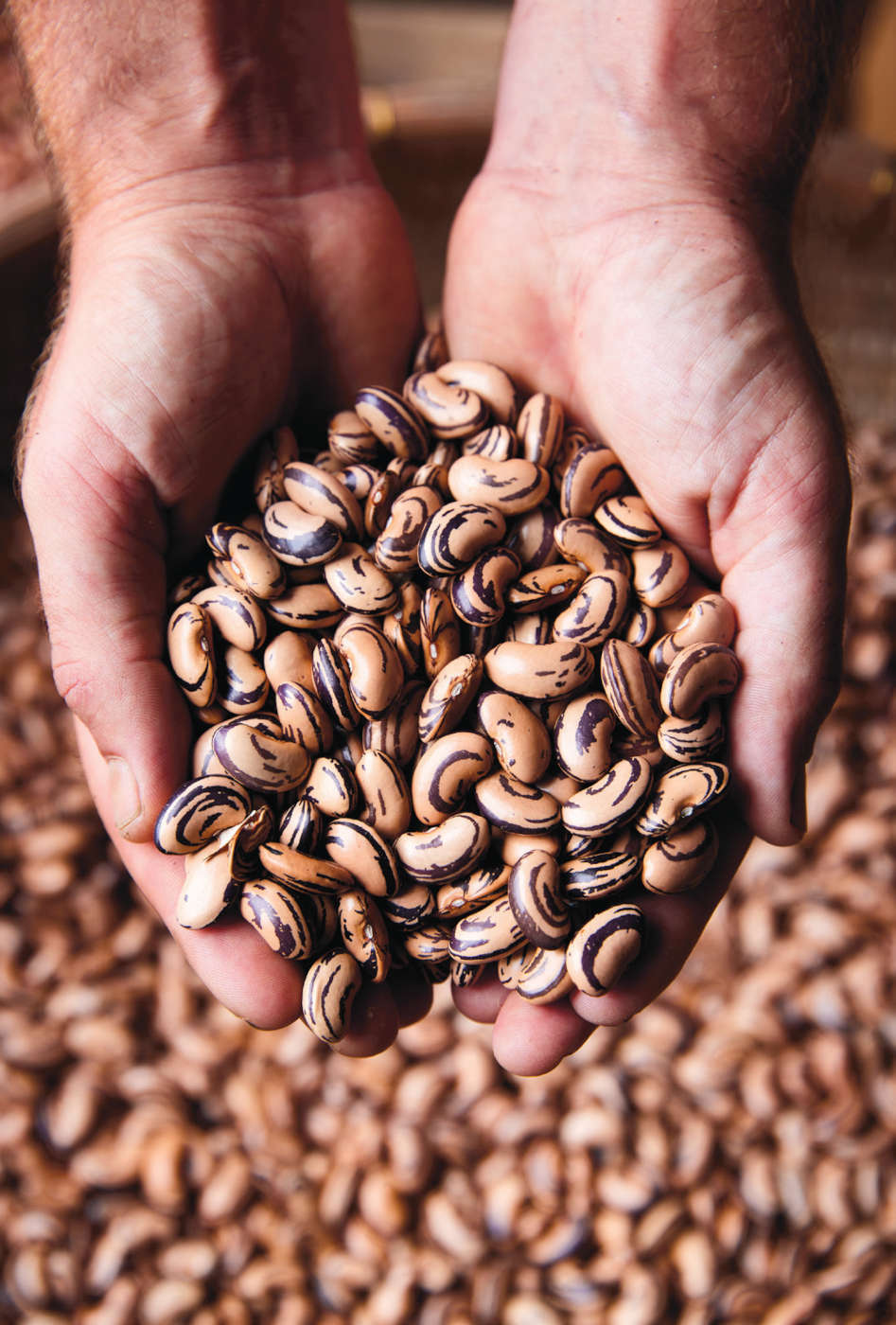
STEEPED WITH INTENTION
A summer stroll through the sloping fields at Woven Roots reveals hand-scale farming practices at work. These production methods build soil structure and allow for the growing of food in an intimate relationship with the land. Both Jen and Pete are as enamored with their soil as the produce that grows in it. “Look at how beautiful this is,” marvels Pete as he scoops up a handful of soil and examines how worms, nematodes, and other organisms have aerated and enriched it.
These organisms aid percolation, allowing water and nutrients to move through with ease and invite carbon back into the soil, creating a perfect environment for crops to thrive. Adding organic matter such as rich, local compost and leaving things undisturbed, save for aerating the soil by hand using a broad fork, are the keys to simultaneously staving off erosion and building soil health. The system works so well that the farm requires no irrigation. And even August’s torrential downpours are so efficiently absorbed that the earth does not feel a bit sodden.
The permanent bed system, established in 30-inch rows and 12- inch aisles, is tended by a team of 11 farmers who grow over 70 crops. Once defined, these spaces remain this way—an approach that creates compacted soil in the aisles (which discourages weed growth) and nutrient-rich beds for seedlings to thrive. “Maintaining a tight harvest and planting schedule as well as an intense greenhouse transplant regiment keeps our fields productive at all times,” says Pete.
“My most meaningful task on the farm is ensuring that the land is given back more than what we harvest from it.”
The patchwork quilt of primary cover crops—take carrots, for instance—double as cash crops. This practice, coupled with crop rotation (the same crop family does not return to a bed until four cycles later), yields diversity and “nutrient dense, wholesome, beautiful produce for our friends and community members all season long and into the winter months,” says Pete.
“We take our work as a real responsibility, and the responsibility ripples out—to ourselves, to the land, and to honoring everyone who came before us,” says Jen. This way of thinking, a guiding light at Woven Roots, hinges on slowing down and observing but does not always go hand-in-hand with maximizing production. That said, Jen offers food production as a farming model that requires tremendous care but not a lot of land. At Woven Roots, there are currently two and a half acres under production—enough to provide food for 1,500 people each week—1,000 through the CSA and another 500 through wholesale accounts such as Once Upon a Table in Stockbridge and Guido’s Fresh Marketplace in Pittsfield and Great Barrington.
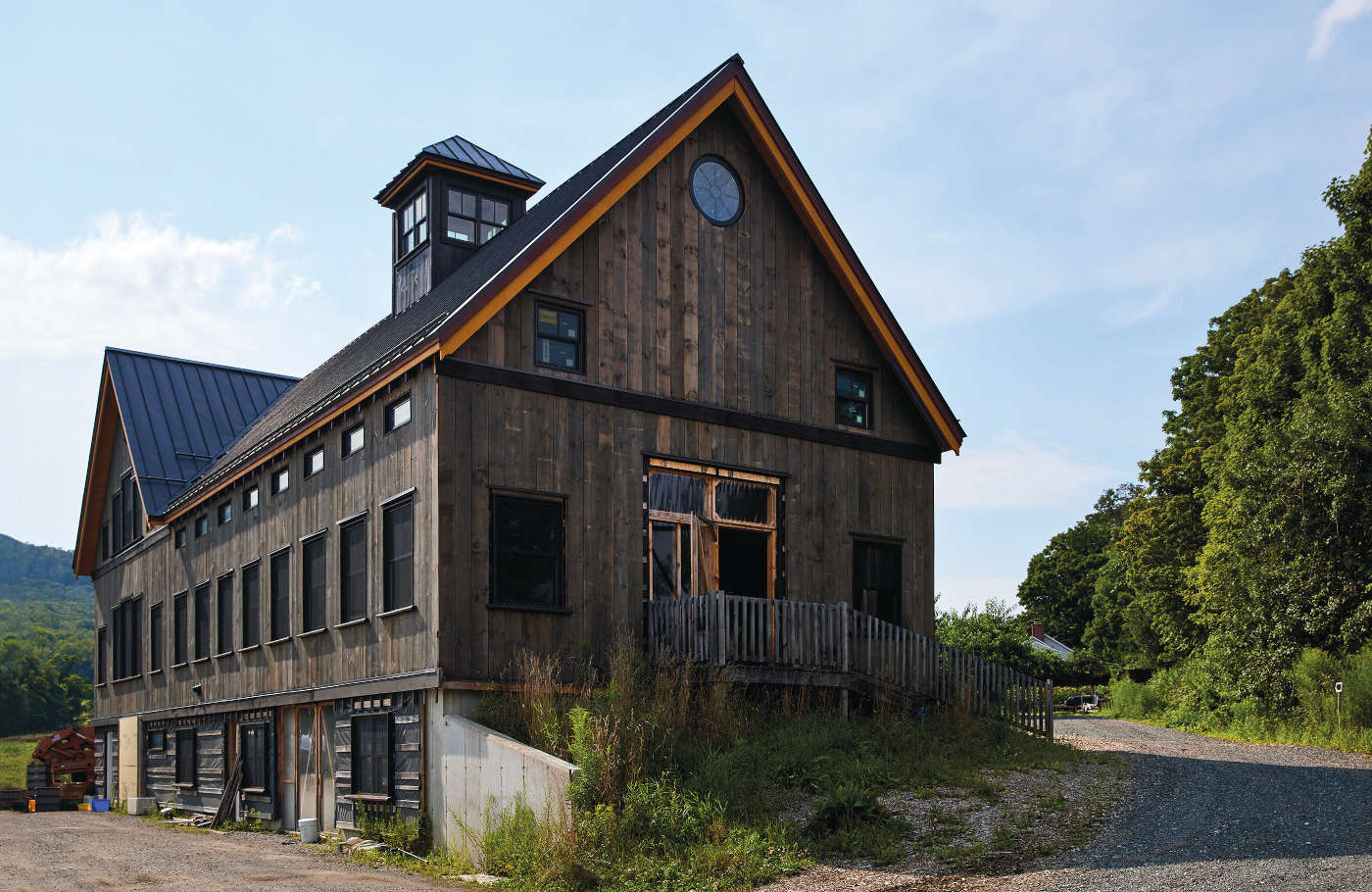
SEEDING SOLIDARITY
Since implementing the community-supported agriculture model 14 years ago, Woven Roots has provided weekly shares to marginalized community members who might not otherwise have access to fresh, local produce. “We refuse to turn anyone away,” says Jen of a priority that, in the early days, often came at a cost to the business. Since 2019, this commitment to food justice has grown into an initiative called Seeding Solidarity with sibling farm Finca Luna Búho in Cheshire, collaboratively directed by Fran Sequeira Calderón and atalanta sungurov. What began with 15 solidarity shares in their first year of partnership has grown to roughly 200 and now provides year-round produce access to community members from Great Barrington to North Adams. “Through this collaboration, we have been able to create a distribution system that we would never have been able to do [alone],” says Jen. Woven Roots grows vegetables and culinary herbs and Finca Luna Búho produces medicinal plants and culinary herbs. Together, they also sponsor programming— prioritizing Spanish—that focuses on gathering spaces, demonstrations, and cooking classes.
Woven Roots addresses the wealth gap that exists across the Berkshires through an equitable sliding scale for its CSA. People who can afford to purchase a “More Than Market Value” share are directly contributing to the Seeding Solidarity Share Fund. “It has been one of the most beautiful transitions that we’ve made,” says Jen of the self-selecting pay-based model that not only reflects an individual’s ability to pay but also offers a system that facilitates wealth redistribution.

GATHERING SPACE
Perhaps more evident to the untrained eye than the implementation of Indigenous farming practices is the stunning post-and-beam barn that’s been (physically) in the works since 2019, after the Conway School of Landscape Design in Northampton helped site the building. The foundation was poured prior to the pandemic, and at last construction commenced in 2021.
The soaring, 3,300-square-foot space was built with lumber from Konkapot Tree and Timber in Ashley Falls, using locally sourced and milled pine board, all of which once grew within a 30-mile radius of Woven Roots.
The project was made possible by myriad factors. A $50,000 Farm Viability Enhancement Program grant allowed the Salinettis to start building the barn, which, prior to co-signing a land covenant with the Massachusetts Department of Agriculture (MDAR) committing the land to agricultural pursuit, would not have been possible.
“We helped to change the policy,” says Jen in a nod to a previous caveat that required farmers to own 10 or more acres of land to qualify for the grant. In addition, the farm was able to secure additional bits of funding from the state to address specific needs, including a walk-in cooler adjacent to the wash-and-pack station, glass-front refrigerators for the farm store, a delivery van, and an expanded parking area. That said, in 22 years of farming, Woven Roots has neither relied on grants nor bank loans to stay afloat; instead, their robust CSA membership provides an up-front loan in advance of each growing season, and the community at large has shown up in a big way: Since 2021, a four-phase collaborative community fundraising campaign aimed at raising $1,700,000 is just $225,000 shy of the total funds needed to bring both the Woven Roots Barn in Tyringham and Finca Luna Búho Community Space in Cheshire to fruition.
“Being able to work with another entity that is both immigrantand BIPOC-led—in a place that honors our lived experience and creates space for others—is a dream come true,” says Jen of the partnership with Finca Luna Búho (which, when translated from Spanish, means Owl Moon Farm). In addition, Woven Roots is piloting a community workspace for those who work remotely or independently and are seeking a space for collective working and community building.
“We seek to create space for those committed to collective liberation, deep commitment to the earth, racial and social justice,” says Jen. “We were intentional about having large windows [facing the fields] so that people could feel a part of, and connected to, the landscape, even if it’s pouring rain.” Lastly, the barn will house a farm store, open to the public, which Jen hopes will be open later in the fall.
“We seek to create space for those committed to collective liberation, deep commitment to the earth, racial and social justice.” —Jen Salinetti
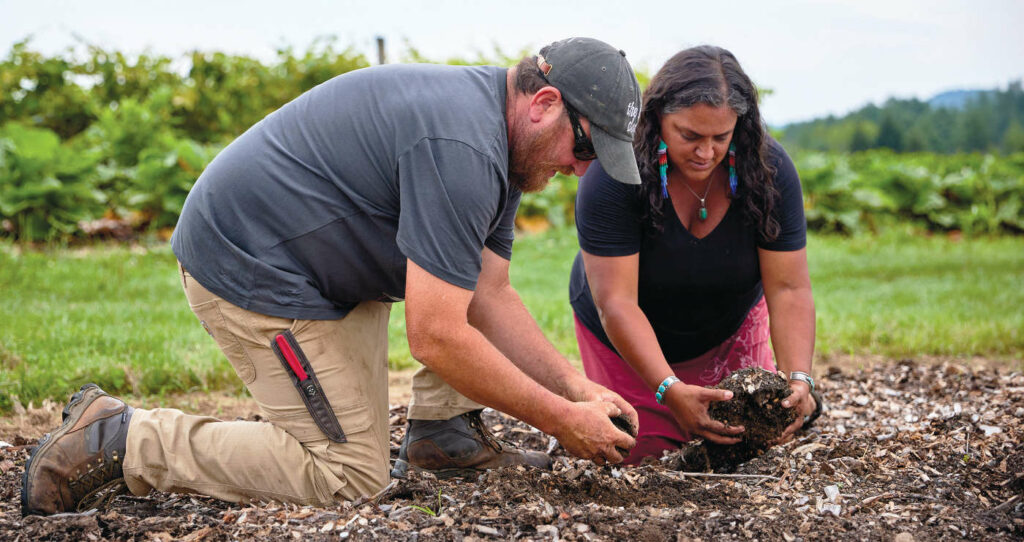
WOVEN ROOTS
Looking back, the Woven Roots moniker pays homage to the fact that no living being can exist in solitude. “[The farm] came to be at a point when Pete and I were both reflecting on what it means to weave the grief and the joy of our pasts together, and to really honor our [collective] interconnectedness,” says Jen, who sees this dependence as integral to developing deep roots and flourishing. In turn, the land, and the process of caring for it, has revealed to her ways in which she can be generous and connected.
“This is 22 years in the making,” says Jen with a sweeping gesture encompassing the rain-soaked fields. She continues to plunge her hands into the soil each day with a deep sense of purpose—of which farming is but a sliver. “Showing up and taking care of each other and finding magnificent places of joy is a dream come true,” she says. “I feel like I’m just getting started.”


